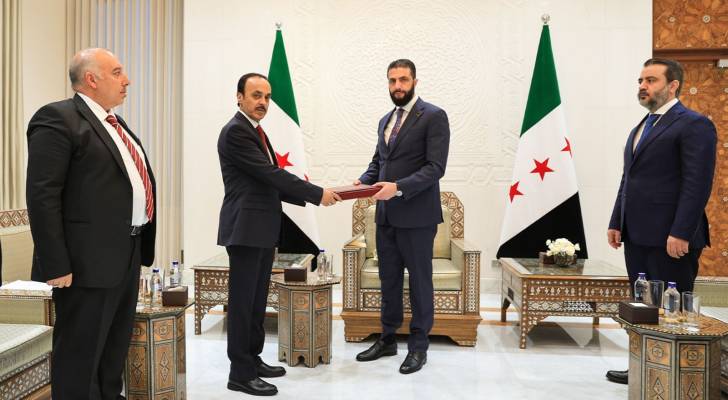President Sharaa receives final report on Syria's coastal unrest
Syrian President Ahmed Al-Sharaa has formally received the final report on the sectarian bloodshed that struck Syria’s coastal region in March, vowing to take steps to ensure justice and prevent similar atrocities in the future, the presidency announced Sunday.
The report, compiled by an independent fact-finding committee formed in March, was delivered to Sharaa on July 13, the same day sectarian violence broke out in Sweida, leaving more than 1,000 people dead in a week, according to the Syrian Observatory for Human Rights (SOHR).
In March, the Mediterranean coastal region, historically home to the Alawite minority, witnessed days of brutal intercommunal violence. Authorities accused Assad loyalists of provoking the unrest by attacking security forces, while SOHR reported that government forces and allies “committed massacres,” killing more than 1,700 civilians, most of them Alawites.
According to survivor accounts collected by rights groups and international organizations, armed men stormed homes, questioning residents about their sectarian identity before deciding whether to kill or spare them. Entire families, including women, children, and the elderly, were slaughtered, with some executions recorded on video.
Sharaa was quoted, saying he would “carefully examine the findings... to ensure steps are taken to advance the principles of truth, justice and accountability, and prevent the recurrence of violations” as part of his vision for a new Syria.
Sharaa also urged the committee to hold a press conference to present its findings “as soon as possible, if it seems appropriate,” though the full contents of the report have not been made public.
The fact-finding committee was originally expected to release its conclusions within a month of its formation on March 9, but the process was delayed until mid-July.
Human rights organizations, including Amnesty International, have called on Damascus to publish the full findings and prosecute those responsible for what they described as “sectarian massacres.”




